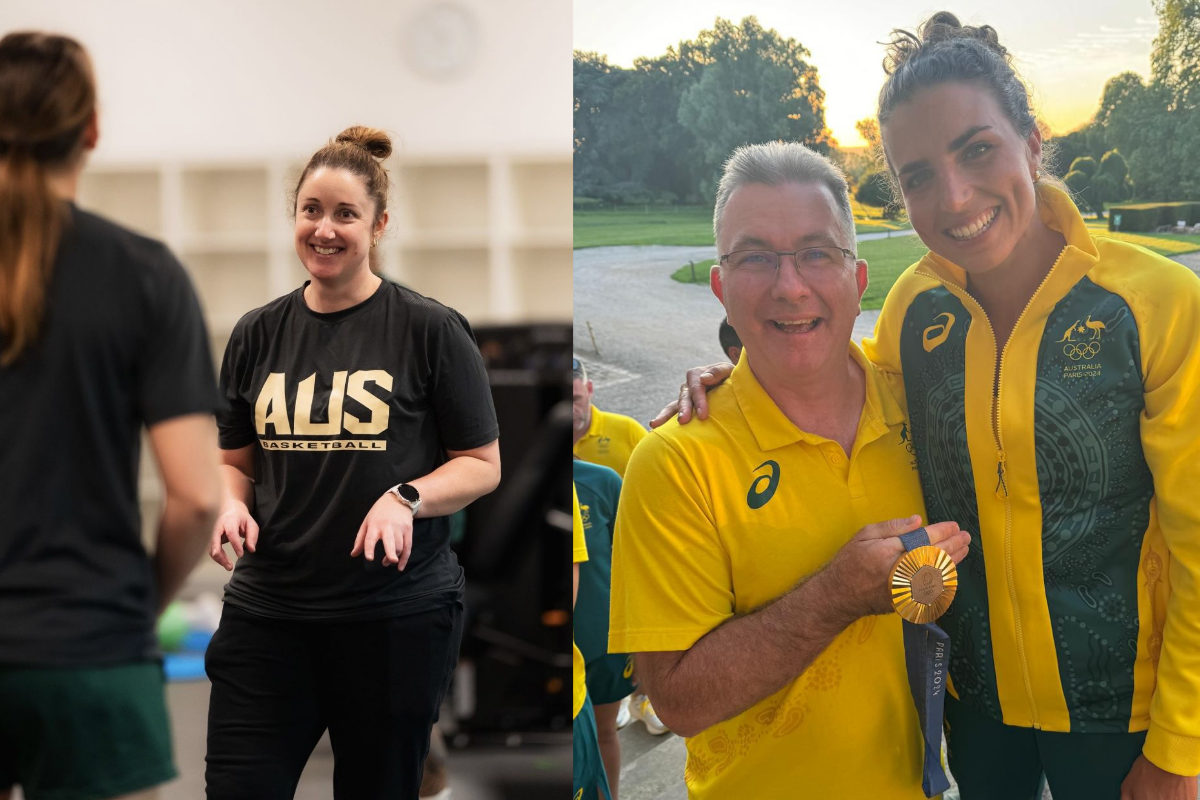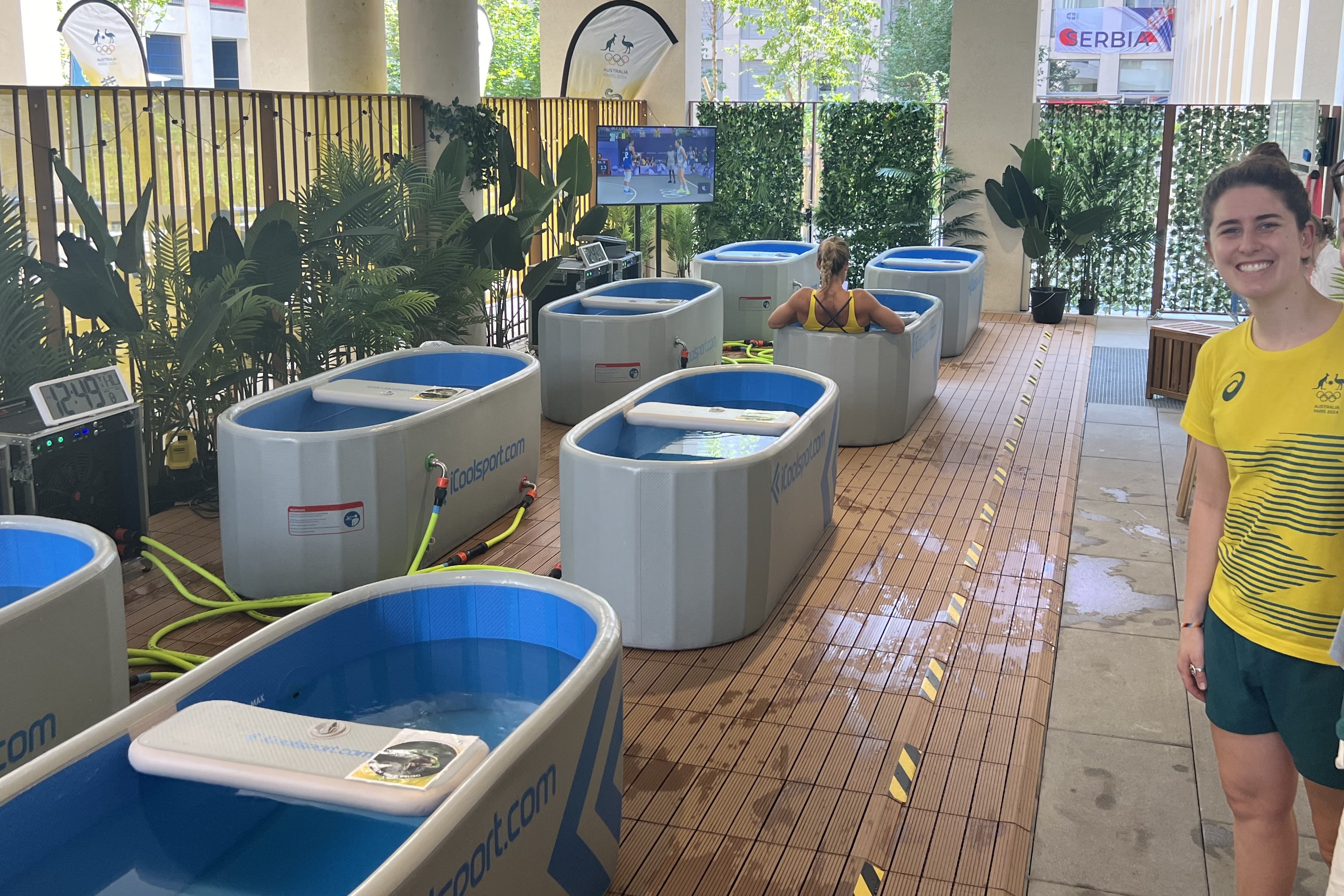08 August 2024
Supporting Australia’s Olympic campaign in Paris are several Australian Sports Commission (ASC) staff who are working behind the scenes to ensure our athletes are in top form before and after their events.

Paula Peralta has been helping the Australian Opals as the team’s Lead Physiotherapist during the Games and head of the squad’s Sport Science Sports Medicine (SSSM) Unit.
Having worked with the Boomers when they won their first-ever Olympic medal in Tokyo, Peralta hopes the Opals can achieve a similar result as she works to keep the players at the top of their game.
“My role at the Games includes acute injury assessment and management, treatment, planning, and communicating any training modifications with coaching staff, WNBA franchises, and Basketball Australia's High Performance team,” Peralta, who is the Network Lead within the National Performance Support Systems team at the AIS, said.
In a sport that appears to push the boundaries of what’s physically possible, ASC Senior Physiotherapist Josh Rigg worked as Lead Physiotherapist for the Australian Gymnastics Team.
While the team gave it their all on the competition floor, Rigg played a crucial role in managing any acute or ongoing injuries gymnasts sustained during the Games.
“The biggest highlight was seeing athletes I have been working with for several years get the opportunity to perform at the event they have been working towards for most of their lives,” Rigg said.
Working across Olympic Village subsites are the ASC’s Performance Services Manager Julian Jones, supporting Australia’s rowing and paddle teams, and Senior Performance Program Consult Caroline Brisebois, supporting cycling, equestrian, and golf.
While liaising with the Australian Olympic Team headquarters, their roles involve organising logistics such as transport, food, uniforms, media, and security arrangements.
“With one-third of athletes accommodated out of the village in subsite locations, the subsite team's role is to make every effort to enable the same experiences and access to what is needed to perform and enjoy the experience for each sport,” Jones said.

Back at the Olympic Village, physiologists Dr Steph Davies and Rodney Siegel are helping athletes recover after their events—a side of the Olympics we don’t often see.
Led by Davies, the recovery hub in the athlete village offers recovery and heat management support from early morning through to the end of each day.
It features compression equipment, a relaxation area with a guided mindfulness setup, as well as chilling units purpose-built by the AIS Engineering team to deliver a constant flow of cold water to equipment such as ice baths and ice vests to conquer the Paris heat.
With so much going on, these are just a few examples of how the ASC is providing support on the ground in Paris. Stay tuned to read about what the team gets up to during the Paralympics in the coming weeks.